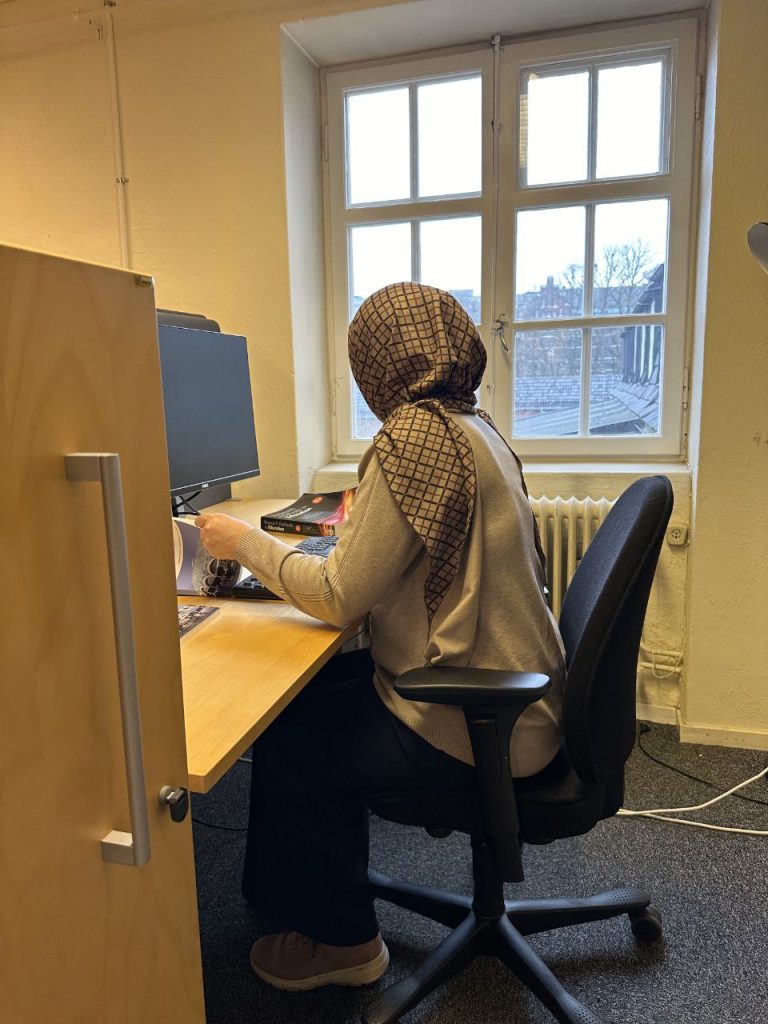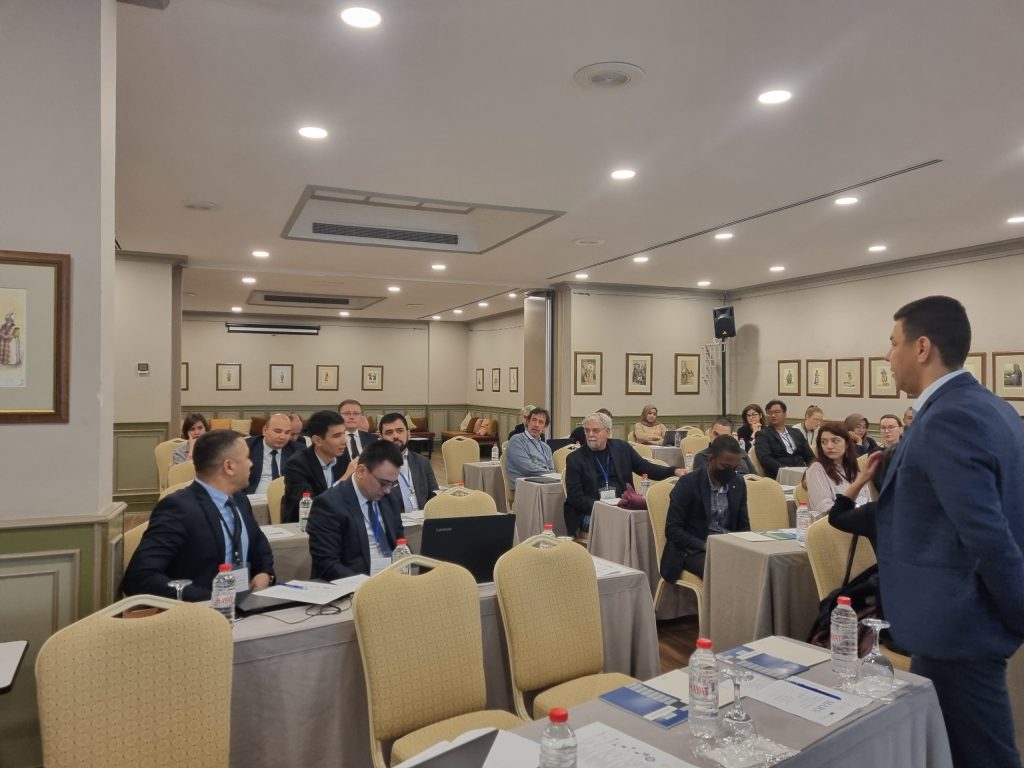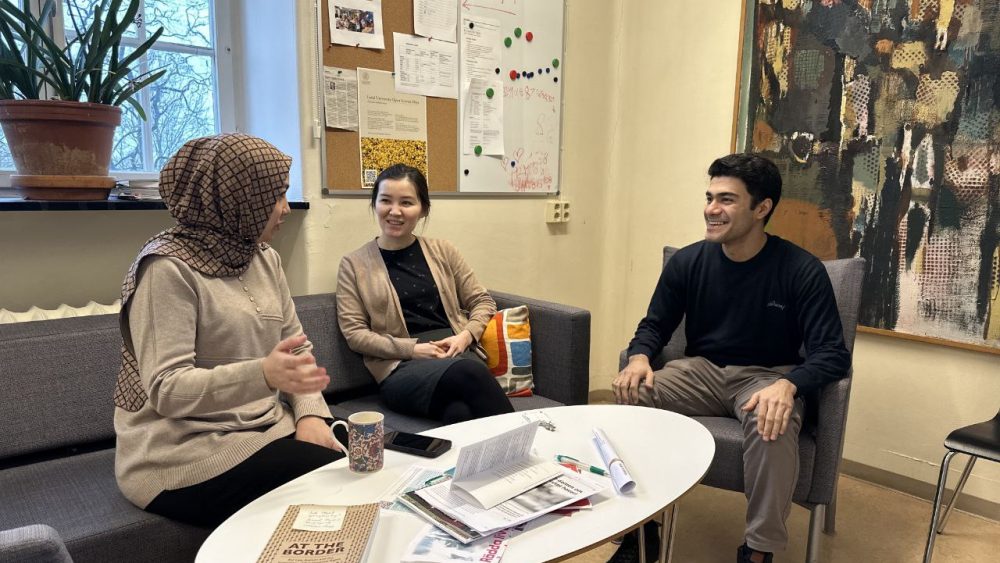My name is Gulnoza Aliakbarova, and from 15 February to 14 August 2024 I had the privilege of undertaking a guest research stay at Lund University’s Department of Sociology of Law, in the city of Lund, Sweden, while remaining formally affiliated with Kurultai Research and Consulting in Uzbekistan. This period has been in many ways transformative — personally, professionally, academically — and I would like here to share my reflections on both the lived experience of being abroad and the scholarly trajectory that led me into studying corruption in higher education in Uzbekistan.
Embracing life in Sweden: culture, everyday routines, and self-growth
Cultural immersion and day-to-day transitions

Living abroad always involves layering new routines on top of one’s core identity. I recall learning to navigate the Swedish system of public transport, discovering the joys of fika (coffee break) culture, experiencing the efficient, egalitarian interactions with colleagues and local residents, and gradually feeling comfortable with modest meals, clear air, and the sense of personal space and quiet that pervades Scandinavian everyday life. At first these things felt subtle, even unfamiliar: the emphasis on consensus, on punctuality, on leaving the office at a reasonable hour; the ease of saying “hej” to a passing neighbour; the freedom to wander the green spaces in and about Lund. Over time I found myself appreciating the slower rhythms: sitting by the canal, borrowing books from the university library in Swedish/English, joining a lunchtime seminar, and reflecting on my research while gazing out at the bare‐branches in late winter.
I also discovered how being an outsider invites both curiosity and self‐reflection. Walking through Lund’s old town, I sometimes felt the contrast between my life to date in Uzbekistan and this new setting. What had I taken for granted? What new assumptions was I learning? For example, I noticed how Swedish academic culture often emphasises flat hierarchies, open discussion in seminars, and a certain informality between senior and junior scholars — a contrast to many contexts I knew previously. This pushed me to reflect on my own cultural assumptions about how research is done, about mentorship, about collaboration.
Personal growth and adaptation
Living away from home for several months invariably brings small challenges. A different grocery store, different banking system, different ways of arranging social life. I had moments of missing my family, my home city, Uzbek food, the sense of local community. But at the same time I discovered a deeper sense of self-reliance: organising travel to Malmö or Copenhagen, joining a lunch conversation in English/Swedish, inviting a few colleagues for coffee, learning to manage productive research time alongside exploration of the south Swedish landscape. These months gave me space to reflect, to read widely, to sharpen my own research questions, and — crucially — to step back from the familiar and ask: what does it mean to do research on corruption in higher education when the setting is one country, but the theoretical frames are global?
This guest‐research stay has left me changed: more confident in interdisciplinary conversation, more comfortable with academic writing in English, more aware of cultural difference and what it brings to scholarship. I return to Uzbekistan with a renewed sense of purpose and with a little Swedish calm in my outlook.
Academic reflections: My research on corruption in Uzbek higher education
Research background and motivation
At Kurultai Research and Consulting I have been engaged with issues of governance, higher education policy, and corruption in Uzbek universities. Over the years I became increasingly aware of how higher education in Uzbekistan is not simply an innocuous arena of knowledge production, but one deeply enmeshed with issues of legitimacy, access, institutional culture and public trust.
Corruption in higher education is no longer an isolated anomaly: it is recognised as a systemic challenge in the Central Asia region and in Uzbekistan specifically. For example, a recent article in Policy Reviews in Higher Education highlights how reforming postgraduate education in Uzbekistan also reveals issues of staff retention, declining public funding and the emergence of corrupt practices (such as soliciting bribes from students) as one of the unintended consequences.
My research seeks to explore how such practices in Uzbek higher education impact institutional culture, student outcomes, academic legitimacy and the broader societal role of universities. I combine socio-legal frameworks (inspired by my time in Lund and exposure to Scandinavian scholarship) with fieldwork: interviews with university staff, students and external stakeholders; document analysis; and a comparative lens drawn from Central Asia and beyond.
Key research findings and reflections
During my stay at Lund I had the opportunity to refine my analytical lens and situate my Uzbekistan case within broader global debates. Some of the key insights I bring back:
– Structural pressures and resource scarcity: in Uzbekistan, declining public funding (the share of higher education expenditure fell from ~10 % of national education budget in 1990 to around ~5 % in 2013) created pressures that lead to staff retention issues and opened space for corrupt practices. My interviews confirmed that staff wages, heavy teaching loads, limited research support and weak accountability combine to create grey zones.
– Corruption as process, not moment: Corruption in secondary and tertiary education in Central Asia is not only about bribes for admission but also includes payments for grades, misuse of institutional funds, favouritism in faculty recruitment, and so on. My research in Uzbek HEIs likewise found that students describe experiences where informal payments, “extra consultations”, predetermined exam outcomes, and connections matter.
– Erosion of meritocratic norms and credibility: Another key reason is that Uzbek students increasingly view degrees as less valuable, partly because of perceptions of corruption permeating the governance and civil service system. This resonates with my fieldwork: when people believe the system is unfair, motivation, institutional trust, and the quality of graduate output suffer.
– Reform momentum and obstacles: While Uzbekistan has implemented a number of legislative and policy measures and the structural legacy of the Soviet‐era system, rapid expansion of HEIs, and weak follow-through mean that policy alone is not enough. My stay at Lund helped me think about what good practices might look like: transparent admission systems, strong internal audit mechanisms, participatory governance, incentives for research integrity, peer review, student feedback loops.
How the Lund stay enriched my research
Being at Lund University’s Department of Sociology of Law offered a number of vital benefits:
- Access to a stimulating academic community, seminars and research colloquia that widened my theoretical toolkit (for example, comparative sociologies of law, governance, corruption).
- Time to step back from the fast pace of fieldwork and write/refine a paper on my Uzbekistan findings, while benefiting from environment of calm scholarship and quality peer feedback.
- The chance to compare my Uzbekistan context with Swedish/European models: e.g., how Swedish universities handle academic integrity, how Scandinavian higher education deals with transparency and governance, and how those lessons might be adapted (respecting local context) in Uzbekistan.
- Personal growth in reading, writing, and networking: I became more comfortable presenting research in English, discussing with colleagues from different nationalities, and refining my research question to emphasise not just that corruption occurs but how and why, and what institutional responses may realistically succeed.

Looking ahead: What next?
As I return to Uzbekistan and resume my role at Kurultai Research and Consulting, I carry with me both the lived experience of life abroad and sharpened academic perspectives. Here are some goals and reflections for the near future:
- I aim to publish (in 2025) an article comparing two Uzbek universities on the basis of corruption dynamics, with reflections from my Lund stay: linking resource constraints, governance structures, student perception, and reform potential.
- I hope to collaborate with Uzbek higher education institutions to pilot an “anti-corruption governance audit” framework for universities: drawing on what I learned in Sweden about transparency, internal review, faculty‐student voice, and adapting it to the Uzbek context.
- On the personal side, I intend to maintain the habits developed in Lund: more regular writing time, seeking international collaboration, mentoring younger Uzbek scholars, and continuing to travel for comparative study.
- Finally, I recognise that research on corruption is sensitive: it involves power relations, institutional risk, and sometimes personal cost. My time abroad reinforced that rigorous scholarly work requires both courage and careful methodological planning, especially in contexts where disclosure may be difficult or contested.
In closing, my guest research stay at Lund University has been far more than a “visit” — it has been a period of maturation, of recalibration, of moving from being “in the field” to reflecting upon it, and of connecting personal growth with academic ambition. I return to Uzbekistan invigorated, thoughtful, and determined to contribute to higher education reform, integrity, and scholarship in meaningful ways.
Thank you for reading. I hope sharing this reflection is useful both for those interested in academic mobility and for those engaged in the challenging but vital work of understanding corruption in higher education systems.

